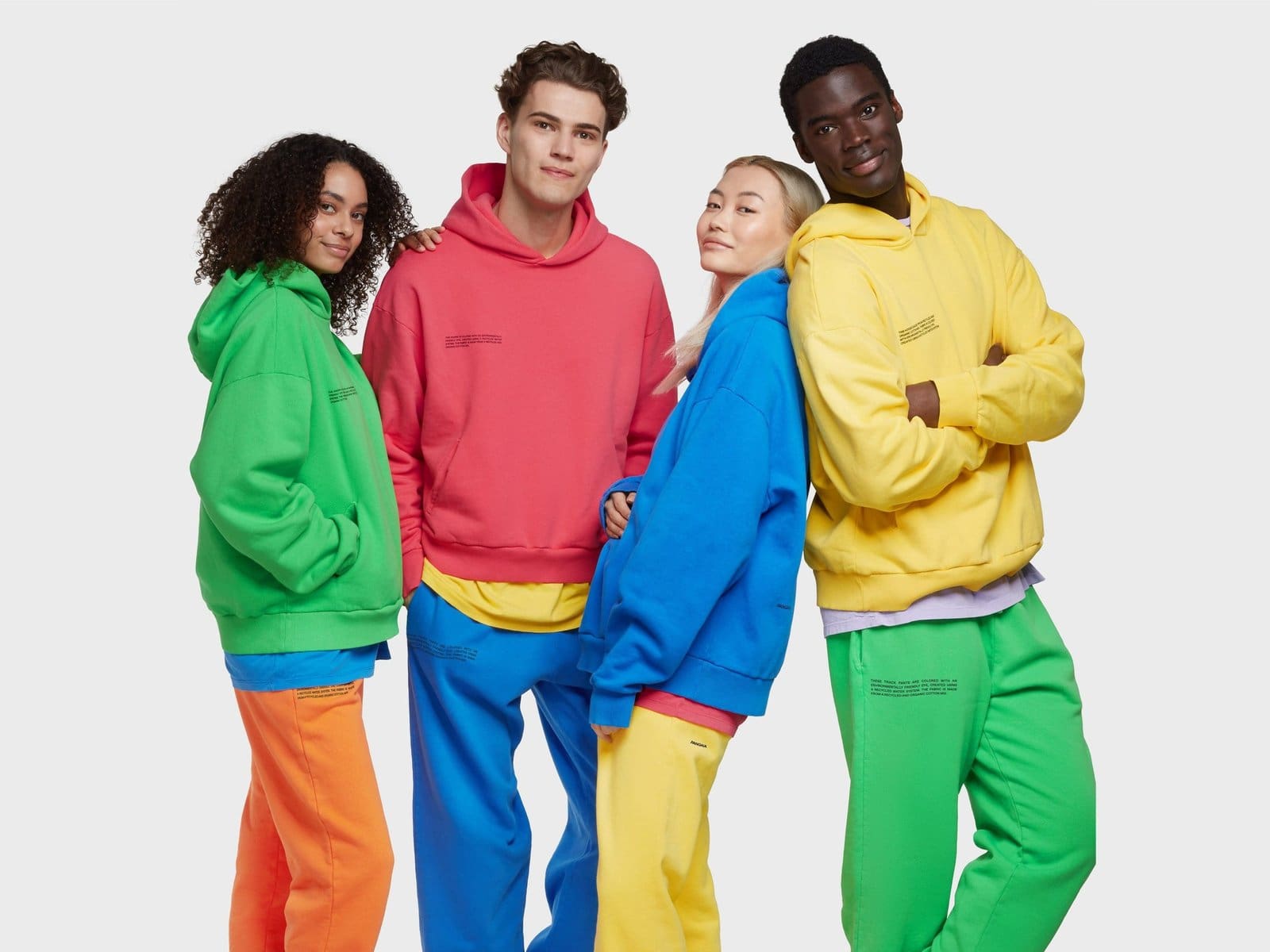We can all agree that we have gotten more wear out of our sweatsuits in the past half year than we did in our entire lives. All other garments that are not elasticated and stretchy – those pretty party dresses, the thick denims and high-heeled stilettos – are collecting dust in the back of our closets now. Well, that is bound to happen when more than half the world’s population is locked indoors in the midst of a pandemic – we seek comfort.
However, comfort level isn’t the main variable we see when looking for loungewear nowadays. Rather, the farther we get into the pandemic, and the more we read about how our ordinary practices, like plane, train, and car travel, add to the environment’s downfall – in March, the BBC revealed that air pollution in New York alone was down by 50% because of a decreased number of vehicles out and about. Specifically, Gen Z is emerging to be the pioneers in leading our panet towards a more sustainable future, even at the expense of making sacrifices such as giving up the comfort of shopping fast-fashion. It wouldn’t come a s a surprise then, that the industry of ethical and sustainable loungewear has been experiencing a dramatic rise in the past couple of months. “Gen Z are looking for purpose above anything else — they are a generation deeply concerned and moved by socio-environmental issues,” says Dr. Amanda Parkes of PANGAIA, which offers sustainable and innovative loungewear options.
One week from now, the brand is reporting a cooperation with JUST Water, the eco-friendly brand by Jaden Smith (the unofficial figurehead of Gen Z), comprised of a nine-piece line of loungewear. The assortment, which incorporates sweatpants, sweat shorts, hoodies, crewnecks, and T-shirts in JUST Water’s signature blue colorway, was made utilizing all-natural cotton, natural dyeing agents, using recycled water. Additionally, proceeds from the collection will be given to #TOGETHERFUND x WJSFF, a charitable organisation that upholds racial equity work and COVID-19 alleviation.
While a PANGAIA x JUST coordinated effort may seem surprising, given that the two are very different businesses, they both strive for the conservation of natural resources. PANGAIA’s plan of action, as well, is unique in relation to what we’ve generally expected from brands — it’s comprised of “scientists, designers, thinkers, and creators from all backgrounds and walks of life,” as indicated by Parkes. So, PANGAIA is at the head of the sustainable synthesis of fashion and technology. “PANGAIA is very much aligned with Gen Z values — which is probably why we have such a strong presence of Gen Z in our community,” Parkes says. “We share their vision of a better world and their drive towards helping shape it.”
Notwithstanding PANGAIA, many other moral and reasonable loungewear brands have hit top prominence since online orders started in March. As per a viral The New York Times article about sweatpants in the period of Covid, loungewear brand Entireworld has seen extraordinary development during the pandemic. Following an “unmistakably human” email in March that was sent by the brand’s CEO and originator Scott Sternberg to its 30,000 endorsers, Entireworld’s website, which ordinarily reports around 46 sweatpant orders every day, sold over 1000 pairs. “By month’s end, the brand’s sales were up 662 percent over March the previous year,” Sternberg said.
Like PANGAIA, Entireworld utilizes eco-friendly materials like natural cotton and reused polyester to make their crewnecks, shorts, socks, and joggers. A strict set of regulations ensures that each piece is made in a responsible way. Breaking free of the current model of transient trends employed by fast-fashion brands, PANGAIA aims for classic wardrobe staples, undisturbed by changing trends and seasons.
Other loungewear brands like Cotton Citizen, Lacausa, Baserange and Wol-Hide are also partaking in the initiative for cleaner, more responsible loungewear and making stylish, yet conscious pieces available and accessible in the market.
Since the time the environmental-crisis reached “the point of no return in 2015,” as Parkes puts it, “more and more people are becoming conscious of the urgency of the situation and committing to changing their behavior and purchasing habits.” The pandemic has just accelerated those changes. Furthermore, as cognizant customers keep on searching for approaches to get the ball rolling, sustainable brands will only gain momentum.
Given that a lot of individuals won’t be returning to their workplaces until one year from now, the end of the loungewear boost is nowhere in sight. Yet, that doesn’t imply that each brand under the sun should stop what they’re doing and get on board with the running pants fleeting trend, at any rate not before considering the environmental duties. All things considered, regardless of how far away it might appear, the pandemic will inevitably come to an end. What’s more, when that occurs — in this manner compelling us out of our crewnecks and into “typical” clothing again — people won’t forget the brands that not only provided comfort, but also helped us to return to a much cleaner, pollution-free world.
SOURCE: Refinery29

